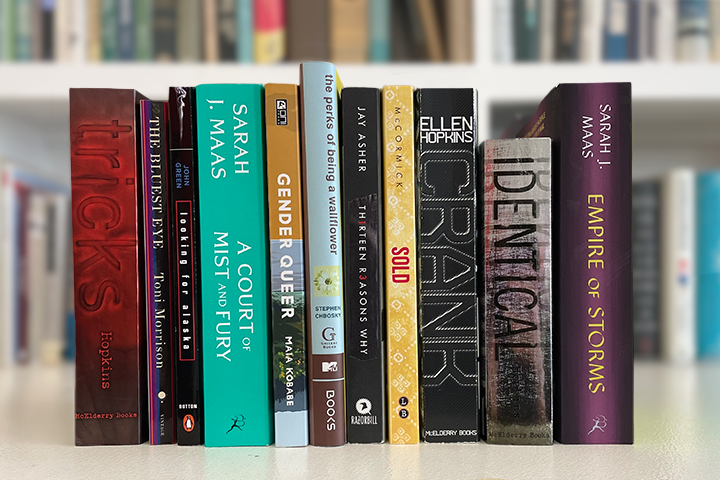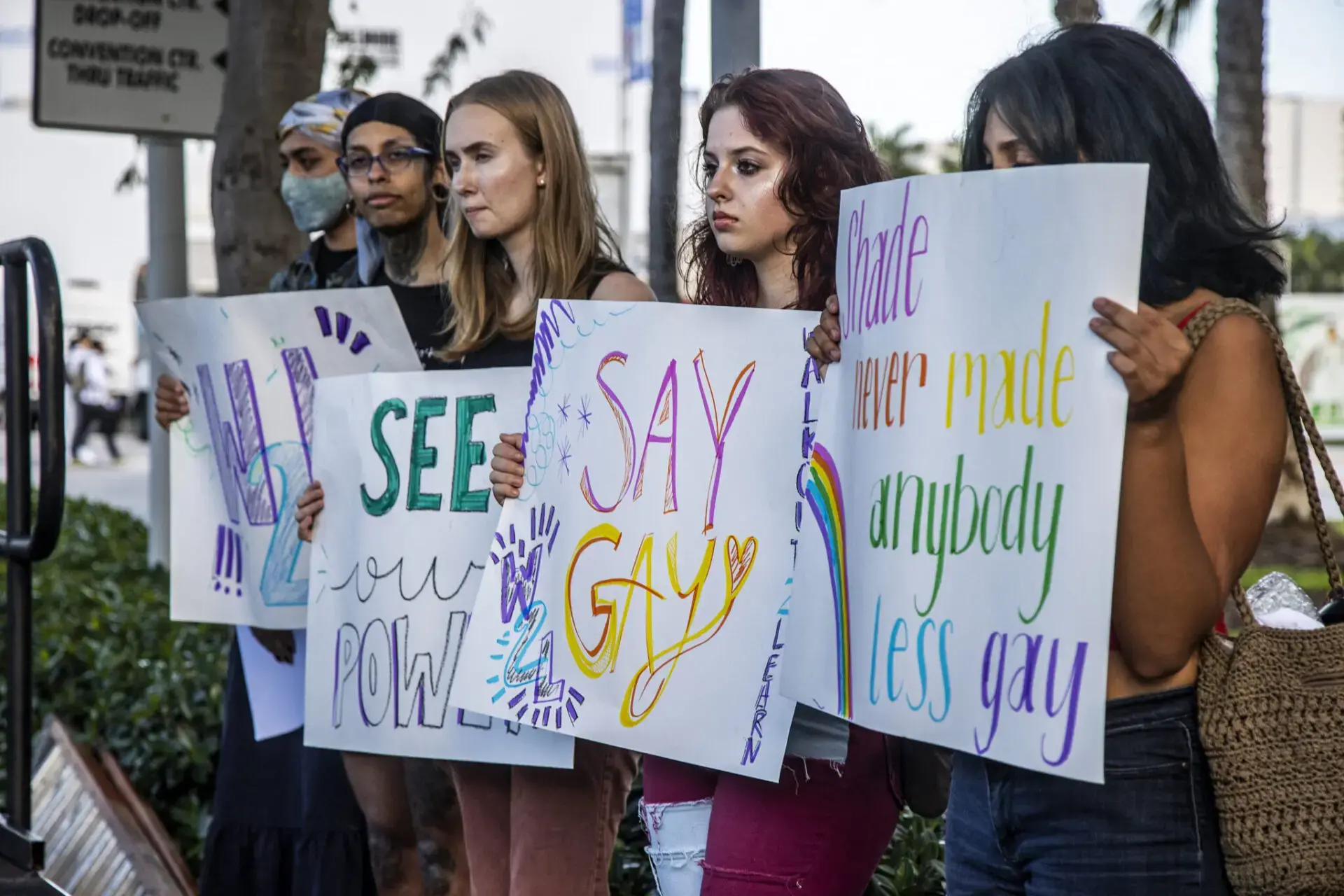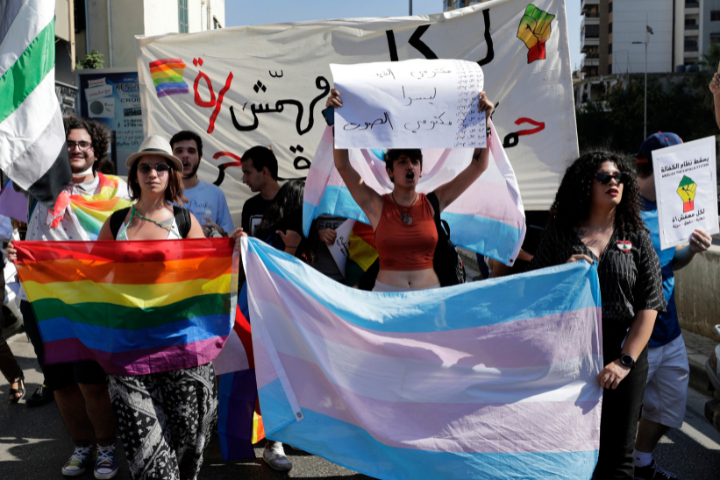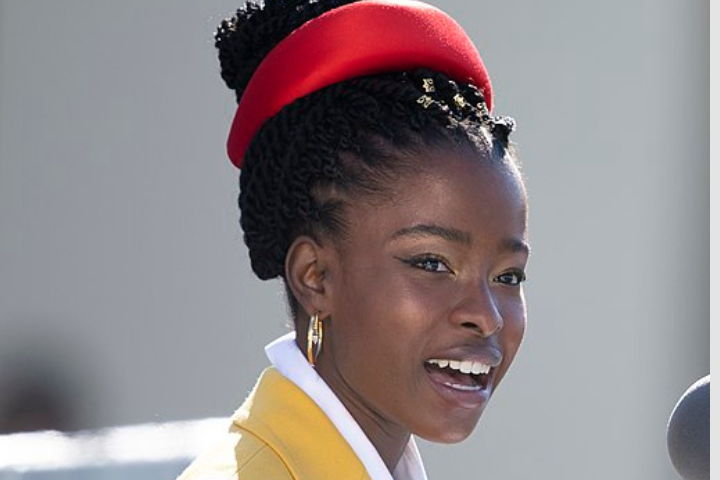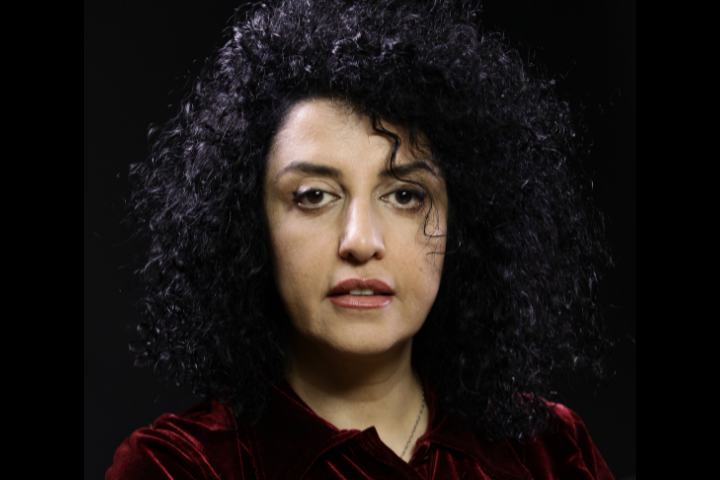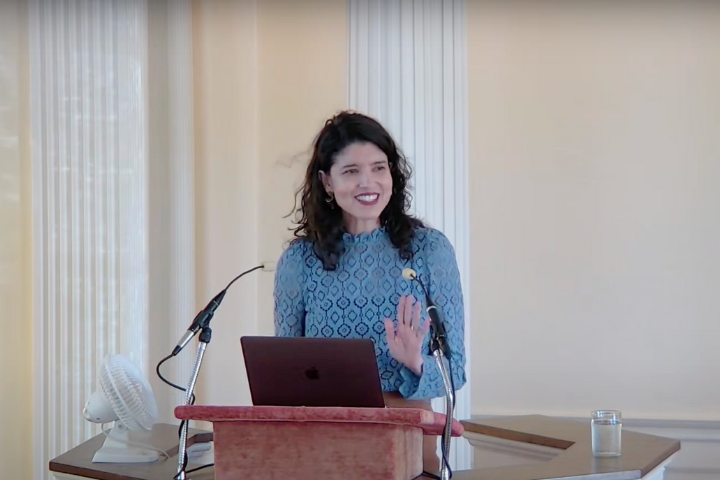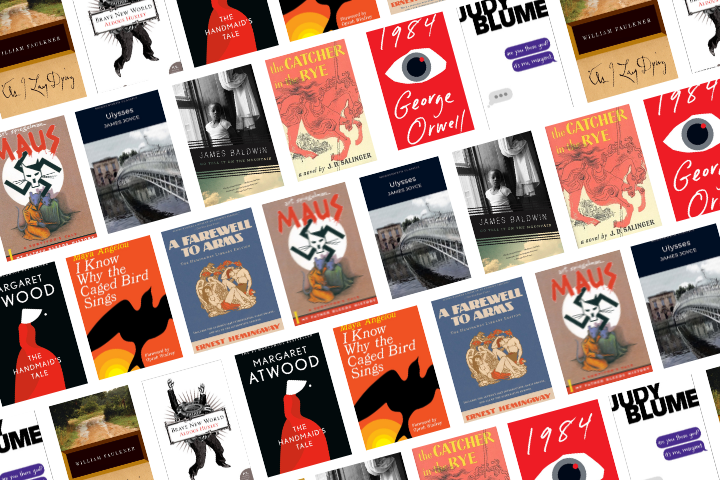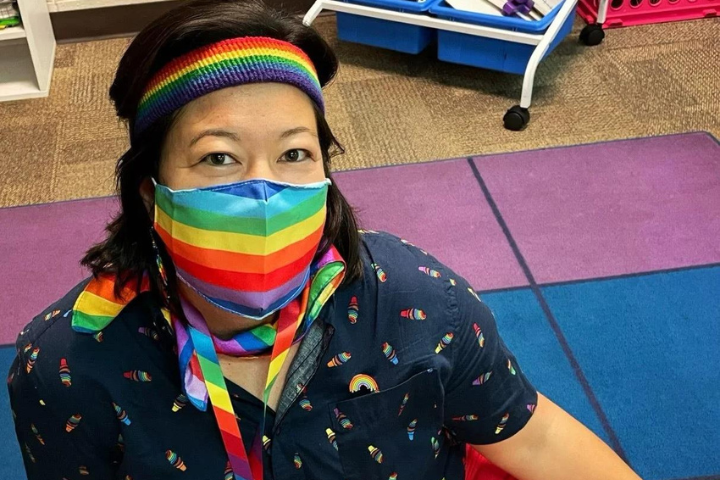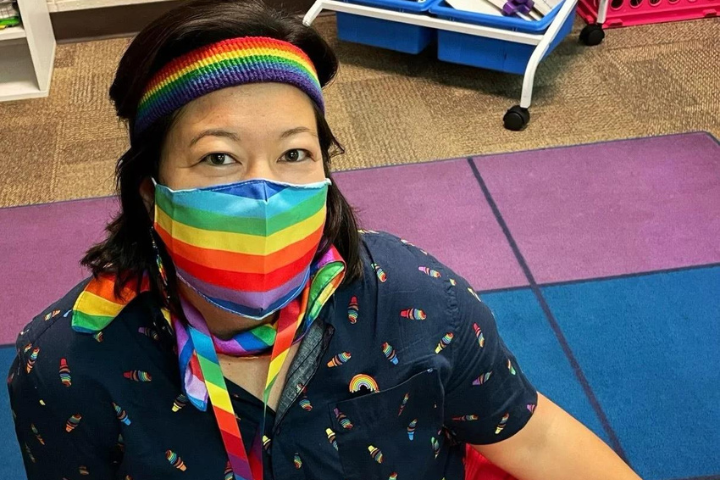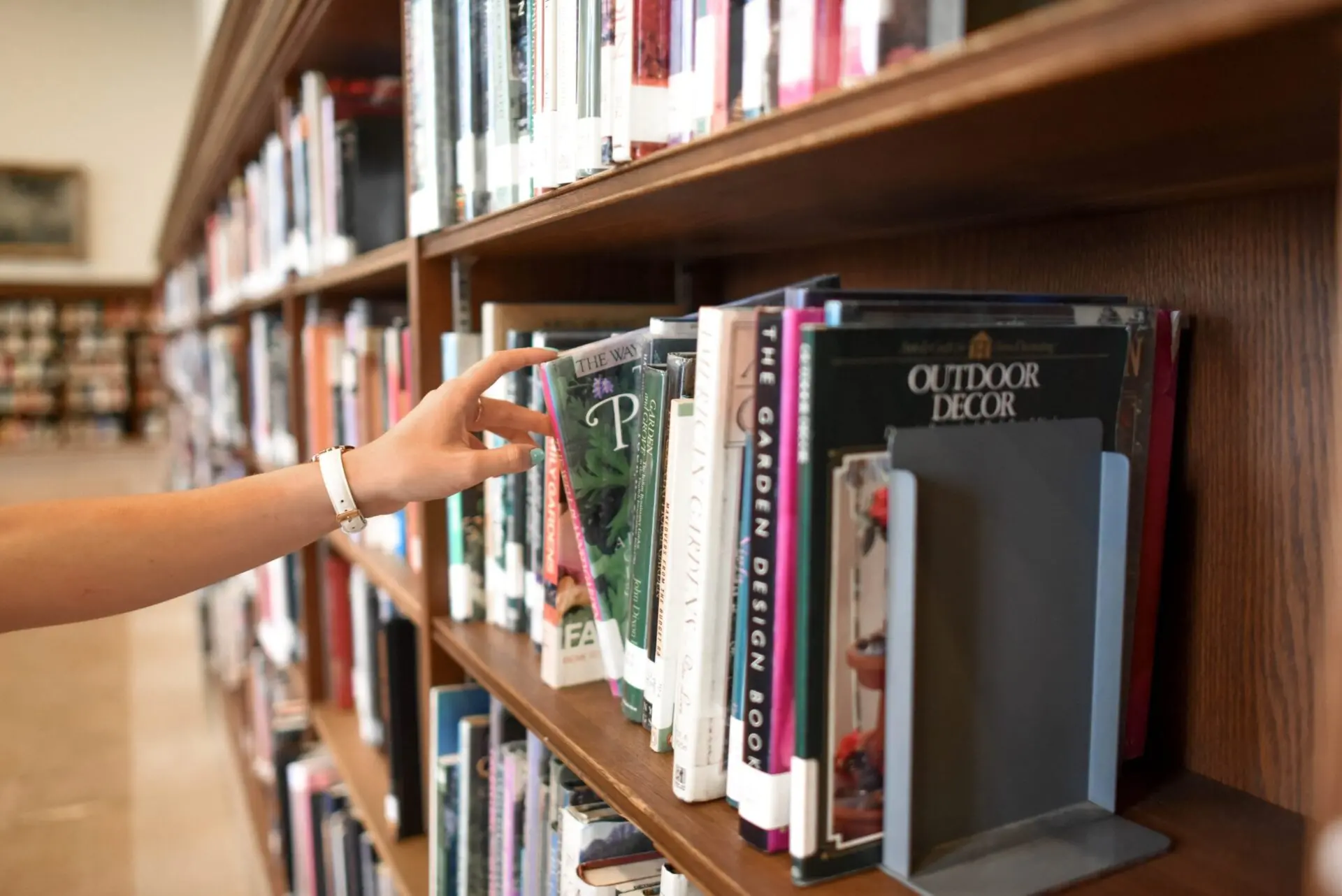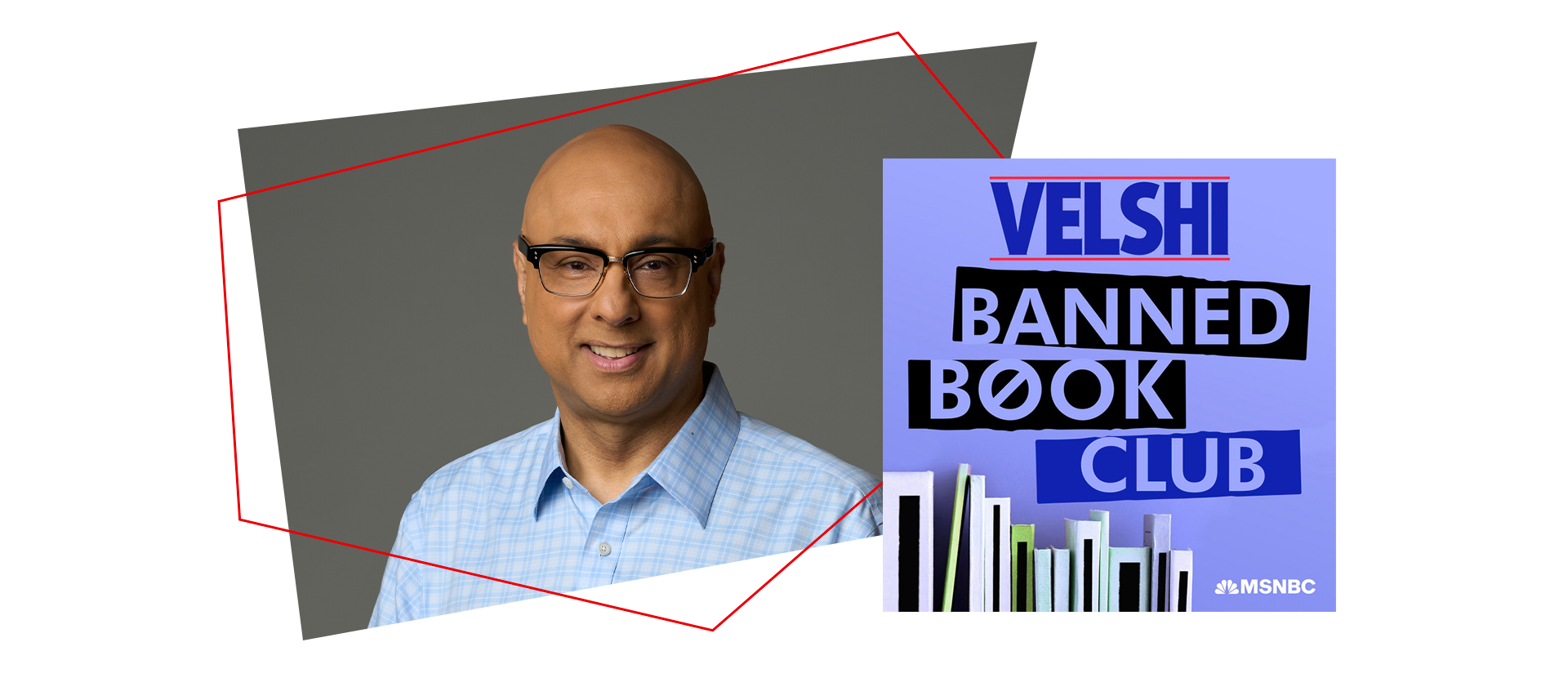
Ali Velshi | PEN America Member Spotlight
Journalist Ali Velshi has focused on the book banning crisis in America through a literary lens for more than a year with his Velshi Banned Book Club segments on his MSNBC show Velshi.
In his new Velshi Banned Book Club podcast, Velshi is joined each week by a prominent author of banned literature to talk about both the author’s experience of being banned and the podcast’s running theme of why literature is, in itself, an act of resistance.
Velshi, a member of PEN America, spoke to us about what drew him to focus on book bans and the new podcast, available on Spotify, Apple Music, Amazon Music, or wherever you get your podcasts.
1. Your podcast is described as “an act of resistance against the epidemic of book banning.” How did Velshi Banned Book Club come to be and why is it so important?
The Velshi Banned Book Club started nearly two years ago as a TV segment on my show, Velshi. Now it is so much more: articles, exclusive streaming, and a podcast. A lot of media outlets were covering the uptick in book bans and removals across the nation, but it was mostly numbers, and the politics of it all. We wanted to approach book challenges through a literary lens. Around that time, Omnika Thompson, our then-Senior Executive Producer of Weekend Programming at MSNBC, e-mailed us with the suggestion. Hannah Holland, the now-editor of the Velshi Banned Book Club franchise, started producing and writing the segments. She really gave it wings because she immersed herself in the stories of the authors, the ideas underpinning the books and, most importantly, the writing itself.
Hannah made “Reading as Resistance” our slogan because it really encompasses why the Velshi Banned Book Club exists. It’s crucial to actually understand the books in order to combat their removal. Reading seemingly salacious, out-of-context passages in the middle of monthly school board meetings has become the norm. You can’t know how necessary that seemingly crude or offensive passage or remark might be for character development, or plot, if you don’t read it. You also can’t make a compelling argument for why “this book needs to stay here” if you haven’t read it.
2. In each episode of the podcast, you’ve been joined by prodigious authors (Margaret Atwood, Nikole Hannah-Jones, and Laurie Halse Anderson, to name a few) to delve into the epidemic of book banning. What are some of the most startling insights you’ve found?
I’ll answer this one with a story. One of the first authors we featured on the Velshi Banned Book Club was George M. Johnson, who wrote All Boys Aren’t Blue. If you haven’t read it, you should. It’s an amazing auto-biographical series of essays about growing up black and queer. We assumed that the bulk of member reactions we would get would be from Black and queer people about the importance of representation. But that wasn’t the case, at all. Overwhelmingly, older, cis-gendered white people wrote in about how much they loved the book. I remember one person in particular explained that they had never even met a Black or queer person, but Johnson’s book helped them understand. I would say this is more pleasantly surprising than startling, but it has really stayed with me. The Velshi Banned Book Club exposes readers to stories they probably wouldn’t pick up at their local store and they really resonate. You don’t have to like a book, but if it expands your world view and creates space for empathy, it was worth every word.
“The Velshi Banned Book Club exposes readers to stories they probably wouldn’t pick up at their local store and they really resonate. You don’t have to like a book, but if it expands your world view and creates space for empathy, it was worth every word.”
3. How do you feel the current state of division in the U.S., and the rise of the “culture war” over books in schools, is informed by your own broad understanding of political instability and your journalistic work around the globe?
It’s interesting you bring up “culture wars” because we have actively stopped using that phrase to describe the book banning epidemic. Imara Jones, the journalist, transgender activist, and friend of the Velshi Banned Book Club, was the first to point out that this isn’t a “war,” at all. There aren’t two sides. Librarians, teachers, and most parents are not willing soldiers, and the classroom is not a battleground. Sure, there is a conversation to be had about appropriate reading material per age group and reading level, but the widespread attacks on books we are seeing is not that. Removing books is censorship. Plain and simple. And it’s been used in history not just to silence the stories of the aggrieved or censor so-called “pornography,” but to eliminate dissent and overcome political criticism and oppositions. Book banning is, at its root, anti-democratic, and it leads to broad scale political censorship.
“Removing books is censorship. Plain and simple. And it’s been used in history not just to silence the stories of the aggrieved or censor so-called ‘pornography,’ but to eliminate dissent and overcome political criticism and oppositions. Book banning is, at its root, anti-democratic, and it leads to broad scale political censorship.”
4. Do you have a favorite banned book that you grew up with? Is there anything new you’ve discovered through your banned book club? Or a favorite topic that often comes under threat?
It became immediately clear that the majority of the books targeted for removal tell three distinct stories: LGBTQ+, black, and sexual identity. It’s company you want to keep, though. You’ve got Meg Cabot’s coming-of-age stories for women, Toni Morrison’s classics, Boy Erased by Gerrard Conley, and everything in between. You can’t pick a favorite out of those books and stories. Collectively, they make up contemporary culture. Whether you like it or not, these three topics are America today.
It’s been incredibly interesting and, honestly, enlightening to revisit books that I read as a young adult. We’ve covered two Shakespeare plays so far: The Tempest and Romeo and Juliet. Reading Shakespeare as an adult is an entirely different experience than reading it in an English class. It’s fun to reflect on how I felt then versus now—and I can certainly appreciate them more today.
5. Is there anything you’d like to say to PEN America’s audience of writers and lovers of literature?
The silver lining to the book banning movement is that it has caused Americans to engage in the small act of courage of buying and reading as an act of civic engagement: targeted books and Velshi Banned Book Club features often see a major spike in purchases and readers. I think this is most important for newer and less well-known authors. Book lovers, writers, and readers are a formidable group with a lot of power. It is not overstating it to say that the more these books are read, discussed, and elevated, the better it is for the soul of our nation.
And I’ll say this: join us. One of my favorite parts of the Velshi Banned Book Club is how interactive it is. Members write in with questions, comments, and reactions and then we use them with the conversations with the authors. The email is [email protected] for anyone reading this right now.
“Book lovers, writers, and readers are a formidable group with a lot of power. It is not overstating it to say that the more these books are read, discussed, and elevated, the better it is for the soul of our nation.”
Ali Velshi is the host of Velshi on MSNBC, He is also a Business Correspondent for NBC News, a columnist for MSNBC, and a weekly economics contributor to NPR’s “Here And Now.”
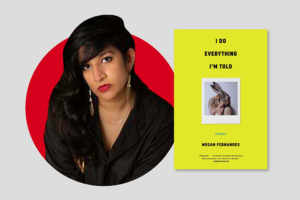
Megan Fernandes | The PEN Ten Interview
My focus was just on the insecurity of being. Everything that happened narratively came from focusing on that feeling as much as possible.
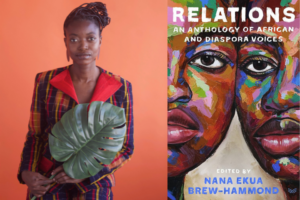
Nana Ekua Brew-Hammond | The PEN Ten Interview
Relations, like all of my work to date, is invested in expanding the mainstream POV to include the overlooked, ignored or unexpected.
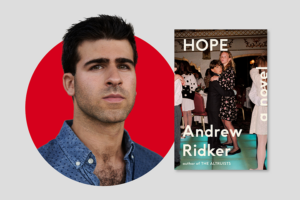
Andrew Ridker | The PEN Ten Interview
By: Anna Lasek | August 17, 2023
In a way, the structure of the novel reflects one of its primary themes: the desire to break away from one’s family, and the bonds that invariably pull one back.
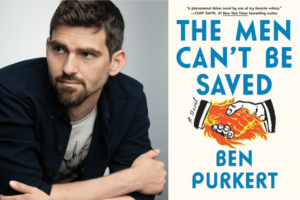
Ben Purkert | The PEN Ten Interview
I followed Seth on his downward spiral and simply tried to keep up with my pen. And no, I didn’t worry that my novel was too dark. I only worried that it not be boring.


